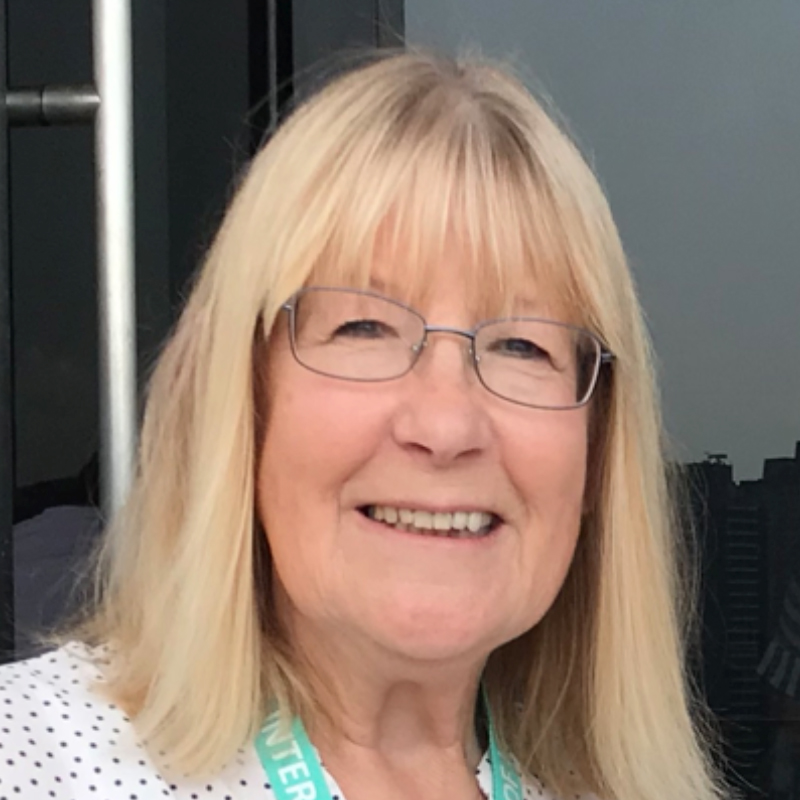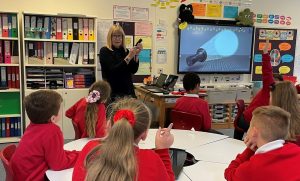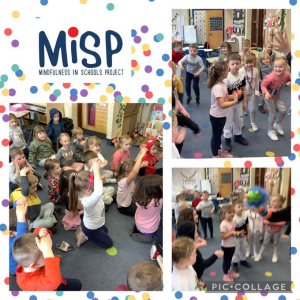
Guest blog by Elizabeth Williams, Chair of Meddylgarwch Cymru (Mindfulness Wales) and Associate Trainer for MiSP
Early in our mindfulness journey in Wales, as a group of educators and mindfulness practitioners, we asked ourselves “What could mindfulness do for learners in Wales?”. We ended up with four solid aims – mindfulness can help our learners cope, connect, flourish and empower change.
There’s a strong message here – it’s so important that we help children cope, but mindfulness is about so much more. It’s about enhancing children’s lives, helping them not just survive but to thrive.
The new Curriculum for Wales
Fortunately, this is the message underpinning the new Curriculum for Wales (CfW) with its 4 purposes for our learners to be:
- ambitious, capable learners
- enterprising, creative contributors
- ethical, informed citizens
- healthy, confident individuals
Better than that, the new curriculum includes an Area of Learning and Experience explicitly for Health and Well-being. The MiSP Mapping shows how dots (30 session mindfulness curricula for age 3–6), Paws b (12 session curricula for age 7-11), .breathe (4 session mindfulness-based wellbeing curricula to support transitions for age 9 to 14) and .b (10 session curricula for age 11 to 18), can make a significant contribution to enabling children in Wales to realise the aims of CfW. The context and policy framework are all we could wish for in Wales and there is already a lot of good practice, so our next challenge is to spread the word.
Mindfulness is a journey
Even with such a supportive policy framework, introducing mindfulness is definitely a journey rather than an event. I’ve been working in one local primary school in Torfaen for about 5 years and over that time nearly all the staff have completed .b Foundations (an introductory 8 week mindfulness course for adults), several staff have trained to teach Paws b, and mindfulness has been woven into the curriculum in every year group and every class. I’m currently teaching dots in Y1 while they get a teacher trained – that’s an extra bonus for me as it’s such fun. Mindful activities are built into the school day in all classes, all children do Paws b in Y4, and in Y6 they are currently doing individual projects to enhance their own mindfulness practice. Staff didn’t need any convincing that what they do makes a significant contribution to the Descriptions of Learning at each Progression Step but having the MiSP/CfW Mapping has enabled them to articulate more specifically what they are doing in their curriculum development and schemes of work. Mindfulness is built into the school development plan, and they are looking at the MiSP Pathways model to help take this forward. The school is in a really challenging area and I’ve been so impressed with the attitudes and application of Y6 when I’ve been teaching them this term.
At secondary level, a community comprehensive in Neath Port Talbot, teaches .b to all Y7 pupils and follows up with a Mindfulness Club for pupils as they move through the school. Conscious of the evidence of the contribution mindfulness can make to the learning and wellbeing environment, several teachers, plus teaching assistants and dinner supervisors, have been involved in the mindfulness developments, and plans are afoot to involve the senior management team. The MiSP/CfW Mapping is now being used to maximise the influence on the Health and Well-being Area of Learning and Experience.
The tip of the iceberg
These examples are the tip of the iceberg and as Mindfulness Wales, a small charitable organisation set up to spread mindfulness to help Wales become a more compassionate, kinder, fairer and more sustainable society, we’re hoping to undertake a survey of mindfulness practice across Wales to help inspire others with examples of good practice.
We recognise that schools can do amazing work in the comparatively short time children are with them. Mindfulness Wales is working with partners to develop Mindful Communities so our schools can be held in an environment where mindfulness can support everyone. So, watch this space as we continue on our mindfulness journey in Wales…

Liz is passionate about the potential of mindfulness to help staff and learners in all sectors of education to cope, connect, flourish and empower change. She teaches mindfulness to children and adults with a particular focus on education, building on a long career in education starting as a primary teacher and headteacher and ending as Head of Children and Young People’s Strategy in the Welsh Government. It’s a real privilege to be part of this team helping to make a difference to the mental and emotional health and wellbeing in schools, colleges, youth settings and families.
Liz is proud to be Chair of Mindfulness Wales, a charitable organisation set up to enhance and encourage mindfulness across sectors in Wales https://mindfulness-wales.org, and is also involved in a research project with the University of Derby on Compassionate Mind Training for Schools.
As an associate of Mindfulness in Action she is part of a team developing and delivering Mindfulness for Education Leaders in partnership with the National Academy for Education Leadership Wales’ Innovation Programme.